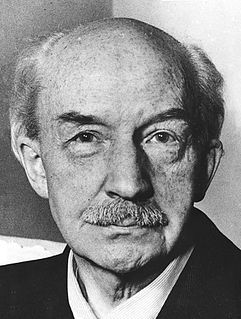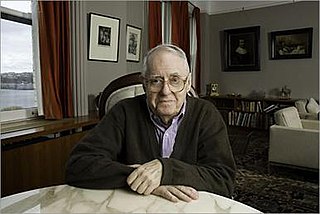A Quote by David Richo
Synchronicity is a term used by Carl Jung to describe coincidences that are related by meaningfulness rather than by cause and effect.
Related Quotes
The importance of the term "genocide" for many Indigenous Peoples is that it is more than a term or an accusation; it is a word created in the wake of the Shoah in Europe to describe what happens when a people are targeted by a government for extermination, as were the Jews of Europe, and which is the term used in the most important international law related to concerned Indigenous Peoples, as the only international human rights law that pertains specifically to collectivities of people rather than individuals.
Tragedy is an imitation not only of a complete action, but of events inspiring fear and pity. Such an effect is best produced when the events come on us by surprise; and the effect is heightened when, at the same time, they follow as cause and effect. The tragic wonder will then be great than if they happened of themselves or by accident; for even coincidences are most striking when they have an air of design.
'CSI' has not only remained a top-rated show through seven seasons; it has had real-world consequences. Police and prosecutors complain of a 'CSI' effect' that leads juries to demand more physical evidence than they used to expect. College officials use the same term to describe spiking enrollment in forensic-science programs.
Setting a field for synchronicity is a matter of putting yourself in a particular state of mind. It is easy to think about synchronicity intellectually, but unless you enter the state of mind where your prayer-field will help, all you will do is glimpse the coincidences every once in a while. In some situations that is enough and you will be led forward for a time, but eventually you will lose your direction. The only way to establish a constant flow of synchronicity is to stay in a state where your prayer field keeps this flow moving toward you--a state of conscious alertness.
General Systems Theory, a related modern concept [to holism], says that each variable in any system interacts with the other variables so thoroughly that cause and effect cannot be separated. A simple variable can be both cause and effect. Reality will not be still. And it cannot be taken apart! You cannot understand a cell, a rat, a brain structure, a family, a culture if you isolate it from its context. Relationship is everything.
Freud, Jung thought, had been a great discoverer of facts about the mind, but far too inclined to leave the solid ground of "critical reason and common sense." Freud for his part criticized Jung for being gullible about occult phenomena and infatuated with Oriental religions; he viewed with sardonic and unmitigated skepticism Jung's defense of religious feelings as an integral element in mental health. For Freud, religion was a psychological need projected onto culture, the child's feeling of helplessness surviving in adults, to be analyzed rather than admired.






































